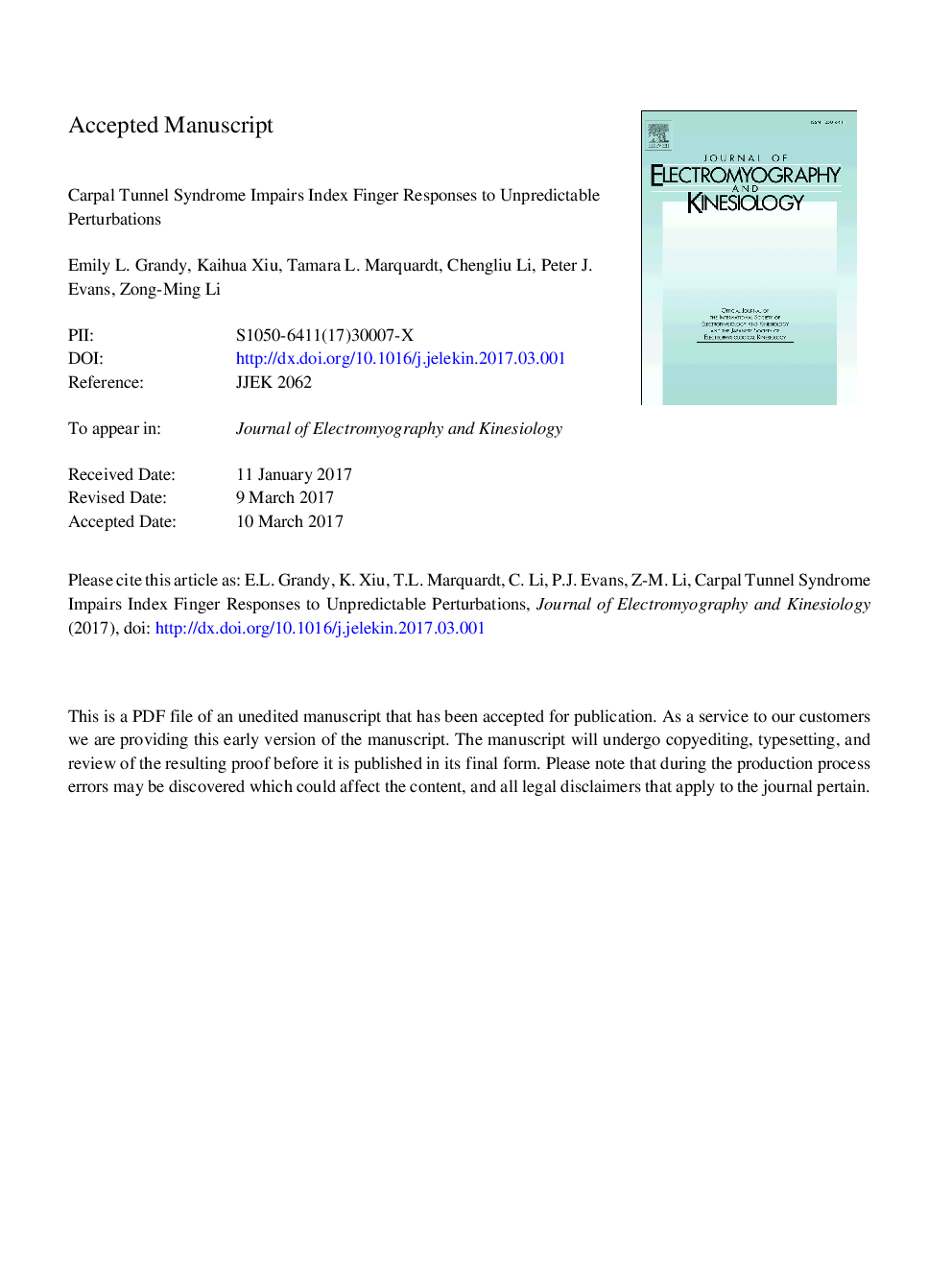| Article ID | Journal | Published Year | Pages | File Type |
|---|---|---|---|---|
| 8799842 | Journal of Electromyography and Kinesiology | 2018 | 20 Pages |
Abstract
The fine-tuning of digit forces to object properties can be disrupted by carpal tunnel syndrome (CTS). CTS' effects on hand function have mainly been investigated using predictable manipulation tasks; however, unpredictable perturbations are commonly encountered during manual tasks, presenting situations which may be more challenging to CTS patients given their hand impairments. The purpose of this study was to investigate muscle and force responses of the index finger to unpredictable perturbations in patients with CTS. Nine CTS patients and nine asymptomatic controls were instructed to stop the movement of a sliding plate by increasing index finger force following an unexpected perturbation. The electrical activity of the first dorsal interosseous muscle and forces exerted by the index finger were recorded. CTS patients demonstrated 20.9% greater muscle response latency and 12.0% greater force response latency compared to controls (p < 0.05). The duration of plate sliding was significantly different between groups (p < 0.05); the CTS group's duration was 142.2 ± 5.8 ms compared to the control group's duration of 133.1 ± 8.4 ms. Although CTS patients had increased muscle and force response durations comparatively, these differences were not statistically significant. Findings from this study suggest CTS-induced sensorimotor deficits interfere with accurate detection, processing and response to unpredictable perturbations. These deficits could be accounted for at multiple levels of the peripheral and central nervous systems. Delayed and decreased responses may indicate inefficient object manipulation by CTS patients and may help to explain why CTS patients tend to drop objects.
Related Topics
Health Sciences
Medicine and Dentistry
Orthopedics, Sports Medicine and Rehabilitation
Authors
Emily L. Grandy, Kaihua Xiu, Tamara L. Marquardt, Chengliu Li, Peter J. Evans, Zong-Ming Li,
